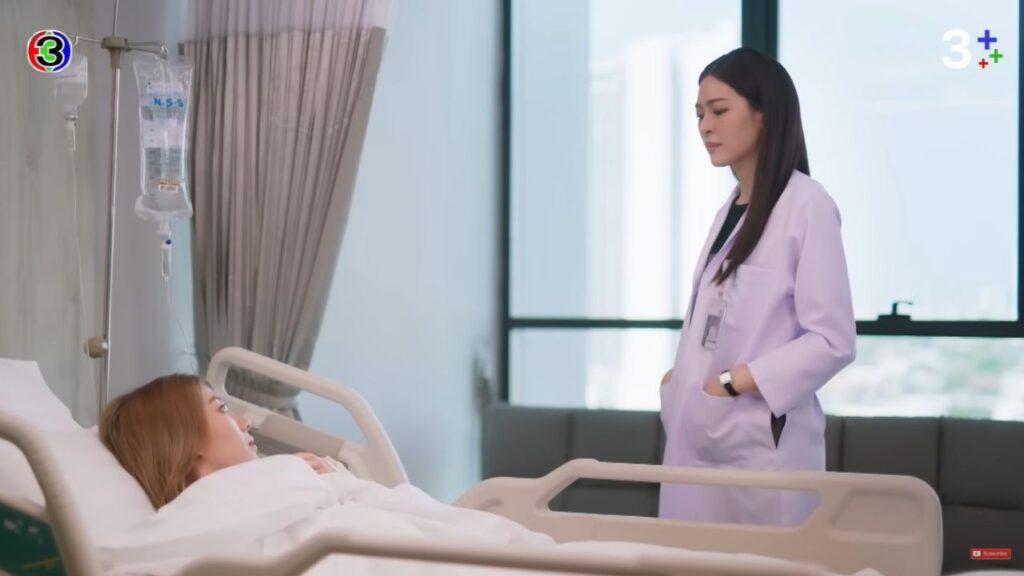The Secret of Us drama series fools you into thinking it is soft, until it dares to expose the rawest parts of queer love and vulnerability.

This series quietly appeared on our screens. Soon, it sparked many talks among fans of queer dramas. What looks like a simple story about second chances slowly turns into something deeper and more relatable.
We are not just watching two women fall in love again. We see the pain after heartbreak, the fear of opening up, and the heavy pressure of family expectations. These themes feel very real for many queer viewers.
The drama explores the complex mix of love, identity, and pain. It tells the story of Earn, who is brave enough to chase lost love. It also shows Fahlada, who builds walls to protect herself from past pain. Their story is not easy or neat, and that is why it matters.
At the same time, The Secret of Us Drama Series raises important questions. Are we making emotional neglect look romantic? Does love mean accepting anything just to reconnect?
In this review, we will look at what the series does well, what it risks getting wrong, and why stories like this need both love and honest critique.
Queer joy on screen should never come without truth and honesty.

Table of Contents
Emotional Scars and Family Pressure in The Secret of Us
Dr. Fahlada, known as the “angel doctor,” carries past heartbreak deeply. Her emotional scars keep her guarded and prevent her from trusting or opening up, especially to the one who hurt her most.
When Earn, her free-spirited ex-girlfriend, returns unexpectedly, tension rises between them. Earn now works as the brand spokesperson for the hospital where Fahlada works. Their professional lives turn into emotional minefields.
The Secret of Us Drama Series explores common but complex relationship issues: breakups, communication, and how family dynamics collide with queer identity. The show highlights how coming out or being discovered can cause emotional turmoil and family rejection.
Ling (Fahlada) and Orm (Earn) bring raw honesty to their roles. They create authentic and vulnerable performances. Their chemistry makes us care deeply for these characters, not just as lovers, but as women facing emotional storms.
Earn fights to win Fahlada back but often ignores her own needs to care for others, especially her family. Meanwhile, Fahlada struggles to please her mother while staying true to herself and facing unresolved pain.
These inner conflicts make the series emotionally powerful and real.

Toxic Romance in The Secret of Us?
Does the series portray Dr. Fahlada’s cold and dismissive behavior toward Earn as romantic? Throughout the show, Earn fights hard to win her back, even when Fahlada repeatedly treats her with emotional distance and neglect.
In real life, if someone tries to rekindle a relationship but faces constant humiliation or emotional harm, should they keep trying? When does perseverance cross into self-harm?
One of the most troubling moments shows Earn purposely giving herself food poisoning to get Fahlada’s attention. Should we view this as a romantic gesture or a clear warning sign?
When love turns into a series of emotional tests and self-destructive acts, the line between romance and toxicity blurs. The Secret of Us Drama Series asks us to think: are we accepting these stories too easily? What message does this send about love, resilience, and setting emotional limits?

Truth and Silence in The Secret of Us
Much of the drama in The Secret of Us Drama Series would have disappeared if Earn had told the truth from the start about why she ended things with Dr. Fahlada.
When they meet again years later, honesty could have changed the whole story. It might have focused more on Fahlada’s family and emotional healing instead of long misunderstandings.
Still, Earn’s silence shows a noble side. She does not want to blame or hurt Fahlada, even if it costs her own peace. Once again, she puts others before herself, carrying the burden alone to avoid hurting the woman she loves.
This delicate balance between protecting others and losing oneself feels familiar to many viewers.

A Story Worth Watching With Open Eyes
The Secret of Us Drama Series shows how actions create consequences and how homophobic pressures shape a person’s life and choices. This story matters because it brings attention and emotional depth to struggles many in the LGBTQ+ community face or see in others.
From the moment Fahlada and Earn meet again, the series pulls us into a storm of feelings and old pain. When those feelings calm, it leaves us with questions. Maybe that is the real strength of this story.
Still, the series asks us to watch with a critical eye. While it shows real conflicts, it also includes moments that need careful thought. We cannot ignore when harmful behavior gets romanticized, even in stories meant to represent us.
Let’s celebrate this visibility and stay open to reflection.
💬 Tell us what you think about the series. Join the conversation in the comments or on social media.

Featured image: Promotional still courtesy of CH3 Plus.



